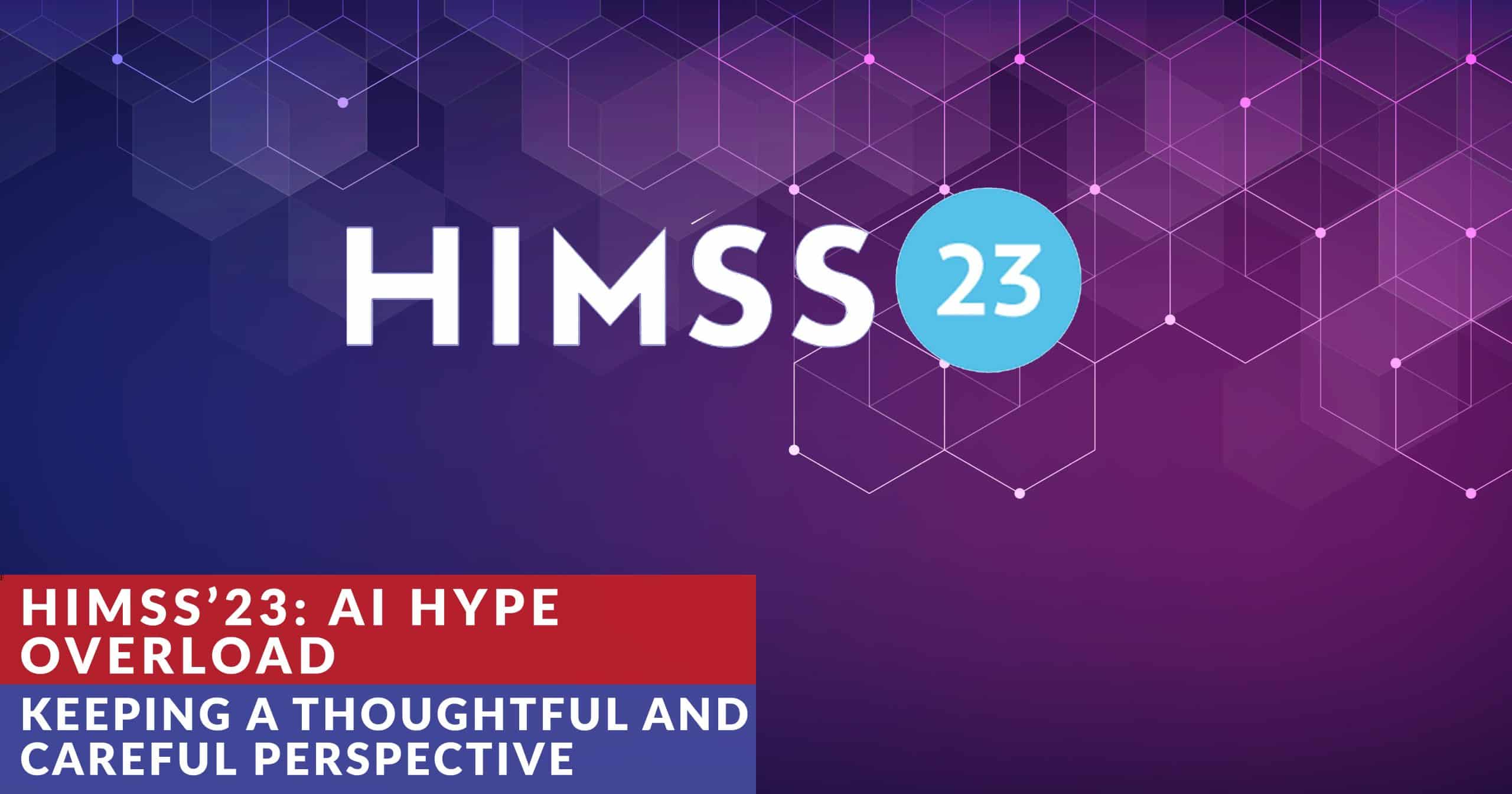Ok, before I even begin, let me put it right out there: I’ve been using Apple products since I first got my hands on one of those cute little Mac SEs in the late 80’s having given up my spanking, brand new Compaq 386 with 64kb of RAM and a dual 3.5 & 5.25 floppy drives to a post doc at MIT who traded me the Compaq, which he needed to finish his thesis, for his Mac. I never looked back. I will attempt to keep that bias in check in this post.
Tomorrow, Apple will formally release the iPad 2, a device that has seen extremely strong adoption in the healthcare sector and even one of the HIT industry’s leading spoke persons, John Halamka of Boston’s Beth Israel Deaconess Hospital (he’s also Harvard Med School’s CIO) spoke to the applicability of the iPad in the healthcare enterprise in the formal iPad 2 announcement last week.
The iPad 2 release is happening while most other touch tablet vendors including HP, RIM, Cisco and those building Android-based devices struggle to get their Gen 1 versions into the market. Of these other vendors, only Android-based devices are available today, including among others the Samsung Galaxy and the Motorola Xoom.
But it is not so much the new features in the iPad 2 (e.g., lighter weight, faster processor, two cameras, etc.) that will continue to make the iPad the go to device for physicians and healthcare enterprises, it is the process by which Apple vets and approves Apps that are available in the App Store. Apple imposes what at times for many App developers is an arduous and at times capricious approach to approving Apps. This approval process is in stark contrast of the one for Android, which is based on an open, free market model letting the market decide as to which Apps will succeed and which will not.
Virtually any patriotic, flag-waving American will say Hoorah, the free market rules. Of course a lot of App developers are saying the same thing and have riled against the Apple process since the first iPhone release back in 2007. But the free market, even here in America is truly not free. We have put laws and regulations in place, be they environmental, public health, etc. to protect the broader public good. Apple has done much the same for its App Store insuring that those Apps which are approved are unlikely to cause harm, which on a mobile device is usually the release of personal information such as passwords, credit card information, etc.
Unfortunately, the same can not be said for the Android OS and its marketplace of Apps. There have been numerous reported cases of malware Apps in the Android Market that most often are not removed until after thousands of users have had their personal information compromised. The latest occurred a little over a week ago when Google removed 21 malware Apps from the marketplace and then proceeded to remove about 30 more.
In the healthcare enterprise market, where very sensitive patient information is gathered and shared for improving the quality and efficiency of care delivered, touch tablets are seen as an ideal form factor for the ever on the move clinician who is looking to access the latest patient information at the point-of-care. Therefore, as clinicians increasingly demand access to such information via their touch tablet device, healthcare IT executives will increasingly seek to insure that the devices used are truly secure. Google’s continuing struggles to keep its Android Market free of malware will prevent devices using this OS from seeing greater adoption in the healthcare enterprise. This will allow Apple to continue to put distance between itself and other touch tablet competitors in this increasingly lucrative market.
Addendum:
Jared Sinclair, an ICU nurse in Nashville TN, has a similar view on the topic,




A bit too heavy on the Apple-sidedness I think. For starters – the title says the iPad will dominate in the “Enterprise.” Was that THE Enterprise (globally?) – or Healthcare Enterprise (vertical?) – couldn’t quite tell – but it’s still pretty early in the evolution of tablets generally to call the iPad a complete victor for either version of the Enterprise.
In terms of security – that’s also a little too early to call. The implication seems to be that while the iPad has NO security flaws – the Android operating system (and apps) are like Swiss Cheese – riddled with holes. That’s pretty extreme – both ends. For one thing – it’s not just the device/OS/app security we need to be concerned with – it’s also the network (where lot’s of data is still transported with no encryption/security). The AT&T network/data breach last June was pretty high-profile and affected over 114,000 iPad users ( http://nyti.ms/eISx7L ). At the very least this highlights the need for greater NETWORK security – in addition to device/OS/app security.
In terms of healthcare iPad adoption – that has been (and continues to be) really outstanding – but I also question how much of that is the actual device (iPad) versus the form-factor (lightweight, always-on, high-res display, long battery life etc….) – which is now being duplicated – and will likely become *much* cheaper. I certainly applaud Apple’s leadership role – and healthcare continues to be a big beneficiary of that – but is it really the device/OS/app combination – or simply the fact that it was the proverbial “first-to-market” for a whole new category of device?
That too is probably too early to tell – but you may recall some of the very first portable personal computers were from an entirely different company – Compaq. That’s the same company (at least from the sound of it) that sold you on their technology first – before you traded it for your second personal computer – an Apple.
The idea that we will soon witness the arrival of competing tablets that are “much cheaper” seems to be based entirely on Apple’s history as a premium-price supplier, and not on the current facts, which are that so far neither Samsung nor Motorola — both industrial giants — have been able to even equal Apple’s prices, let alone beat them.
Sure, it’s possible that some no-name house in China can cobble together a slow processor, a lousy resistive display, and other shortcuts to field a $200 device, but that’s not what the enterprise market buys.
For equal features, Apple has so far beaten all comers on price. Given that Apple has already tied up 60% of the world’s capacity for touchscreen displays, that is unlikely to change. No one else has Apple’s buying power. Not even close.
The idea that we will witness a repeat of the PC wars of the 1980’s is a fantasy. Apple learned from that mistake. This time they are playing serious hardball. On price.
Hardware device costs (especially ones designed mostly for display – and casual update/editing) are a fairly small fraction compared to the cost of developing complex software used to edit, manage, store and (securely) deliver terrabytes of both clinical (and non-clinical data) every day to hundreds if not thousands of users (as is the case of most large HIT shops). In fact – you can “jailbreak” a Nook Color and get all of the features/functions of the full Android OS on a pretty compelling 7” display. Forget $500 or $800 – how about $250 – WiFi included? http://read.bi/f2XA0I
This really is the first inning in the evolution of a new device – and while Apple is the current and undisputed king – they are still (a fairly stagnant) 3rd behind RIM and Google in another device category – the smartphone. Somewhat surprising (at least to me) is that the Android market share continues to climb in this category (mostly at the expense of RIM – but not exclusively). http://bit.ly/fFklGy
From an Enterprise IT perspective (with limited and limiting resources), it’s the software development/management costs that begin to influence hardware selection – not just the cost of the display. With the introduction of Xoom (and others soon to follow – with fairly comparable specs and pricing), that lead will diminish. As an indication of just how fast this market is moving – there’s an interesting article from earlier today that highlights how one company (in their opinion) “can beat the iPad.” It’s not Motorola or Samsung – it’s Amazon. http://read.bi/emOroH